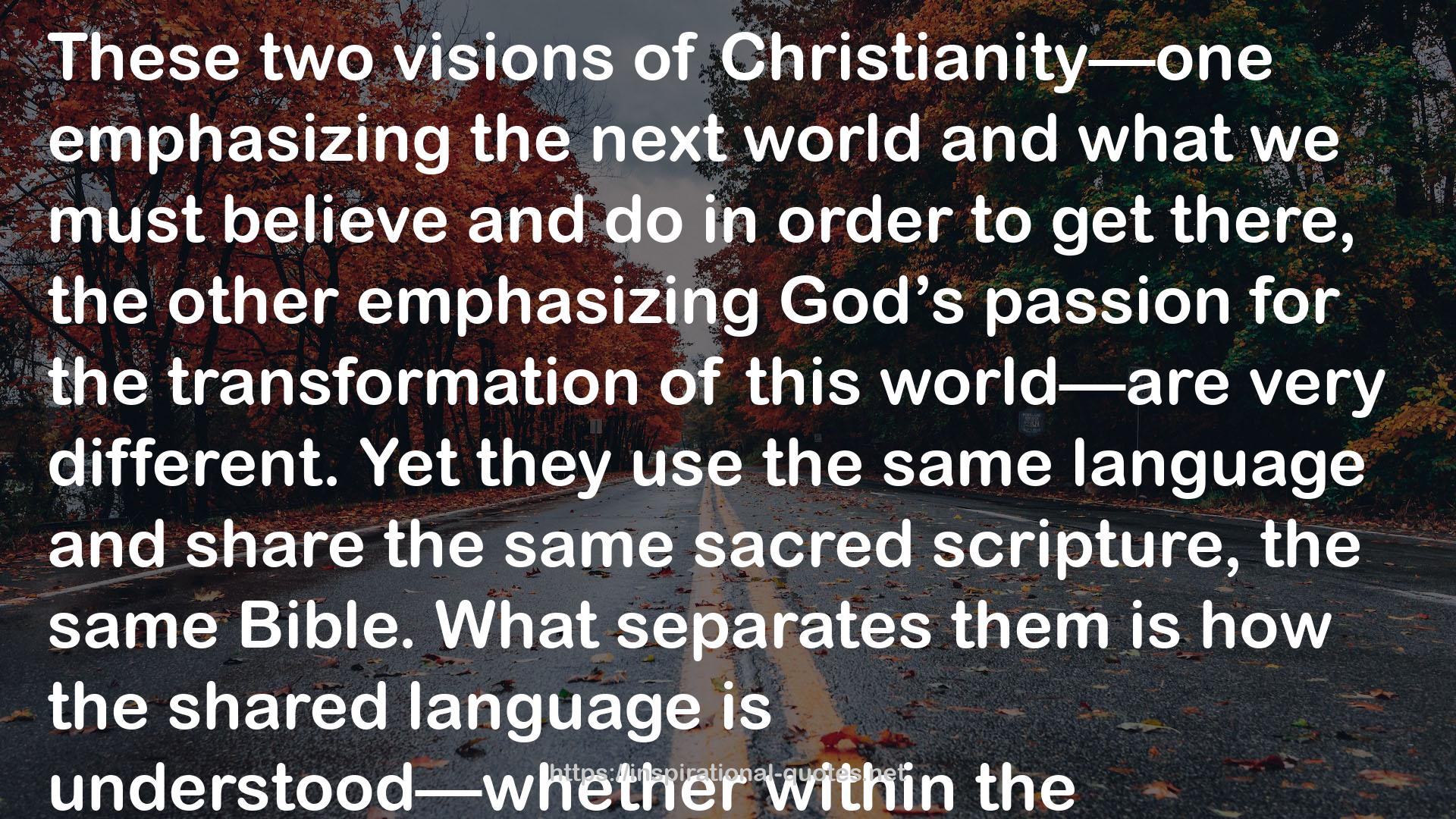" These two visions of Christianity—one emphasizing the next world and what we must believe and do in order to get there, the other emphasizing God’s passion for the transformation of this world—are very different. Yet they use the same language and share the same sacred scripture, the same Bible. What separates them is how the shared language is understood—whether within the framework of heaven-and-hell Christianity or within the framework of God’s passion for transformation in this world. The latter framework, I am convinced, is more biblical, ancient, and traditional (even as it is not conventional, but subversive). It takes seriously the ancient meanings of Christian language in ancient context. The former is the product of a process that began when Christianity became allied with dominant culture, initially in the Roman Empire in the fourth century and then gradually in all of Europe and parts of the Middle East. The result was that Christianity became largely a religion of the afterlife and the postmortem fate of us as individuals. It was no longer about changing the way the world is, for the world was now ruled by Christian authorities. Heaven-and-hell Christianity domesticates—indeed, commonly eliminates—the political passion of the Bible. "
― Marcus J. Borg , Speaking Christian: Why Christian Words Have Lost Their Meaning and Power - And How They Can Be Restored
